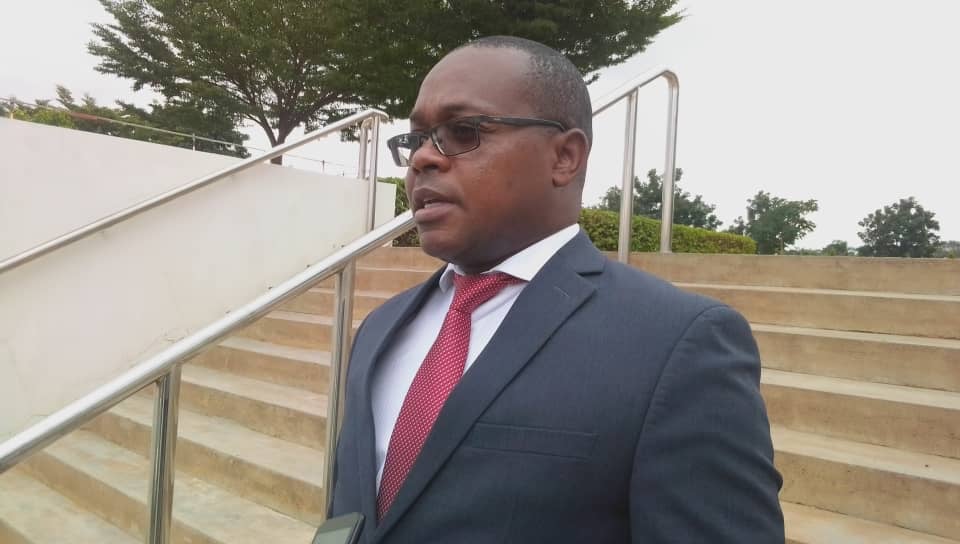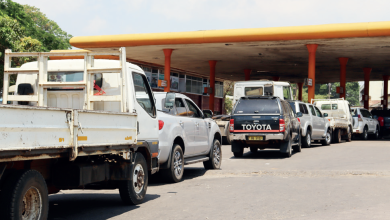Government accounting up grade stalls for 12 years
Auditor General (AG) Thomas Makiwa has warned that the country is moving at slow pace to adopt crucial international accounting rules for government funds.
This slow pace, he says, is preventing the country from fully benefiting from the transparency and accountability instruments the rules guarantee.

The AG raised the concerns in his report on the government’s finances for the year ending March 2023.
Despite committing to the International Public Sector Accounting Standards (Ipsas) in 2011 and setting a detailed roadmap in 2018, the government has failed to meet its own targets, remaining stuck at an intermediate stage 12 years later.
Said Makiwa: “Since 2011, this is 12 years down the line and the progress is not worth the length of time invested. This will deprive the government the benefits of Ipsas Accrual such as improved financial management information reporting and transparency, greater accountability and fight against fraud and corruption, improved use and management of public sector resources, particularly assets and improved cash-flow management.”
The Public Finance Management Act of 2022, Section 26 requires government financial reports to follow Generally Accepted Accounting Practice (Gaap). For the government, this currently means standards set by the International Federation of Accountants (Ifac).
However, the National Audit Office (NAO) says that the current Modified Accrual accounting method used by the government has significant limits.
In a response to our questionnaire NAO spokesperson Rabson Kagwamminga said the limits affect the AG’s ability to fully check government finances.
He explained:” Accounting primarily captures cash and short-term obligations. Long-term liabilities such as pension obligations, contingent liabilities and public debt guarantees are not fully reflected,
“Similarly, government-owned assets like infrastructure, plant and equipment are often undervalued or completely omitted from financial reports.”
Kagwamminga further said Modified Accrual doesn’t give a complete picture of the government’s financial health. This he said makes it hard for the AG to assess the long-term sustainability of public finances, fiscal risks and how efficiently assets and debts are managed.
For instance, he said a road built for billions of Kwacha might not be properly listed as a long-term asset or have its decreasing value shown over time, meaning its true worth and condition are unclear in the official accounts.
In an interview last week, Ministry of Finance spokesperson Williams Banda agreed that progress had been slow and he also admitted that the complexity of moving to the full Ipsas Accrual system caused delays, leading to a revised plan.
Said Banda: “The observation is correct. Malawi after realising the intricacy of activities involved in full accrual implementation has made steady progress to the extent that the financial statement of 2024/2025 are being prepared on stage three which is Modified Accrual.”
Banda also cited some challenges including, not enough resources for training on the technical changes, the huge job of counting all government assets including things like historical monuments and making sure all reports meet Ipsas rules.
According to him, the major obstacle stopping progress past the current Modified Accrual (Stage II) has been valuing government assets.
“The transition to Stage 3 was delayed because there was a need for valuation of assets so that they should be included on the face of the financial statements. Valuation of the government fleet has steadily progressed and almost completed and valuation of land and buildings has also commenced,” he said.
Under the Ministry’s new plan, the 2024/2025 financial statements will use Modified Accrual (Stage II/III), embedding its core principles. The full Ipsas Accrual system (Stage IV) is now targeted for the 2026/2027 financial year.
Banda also downplayed risks of not meeting legal standards, saying current reporting meets basic Gaap rules and that Malawi is among many countries gradually making this complex transition.





